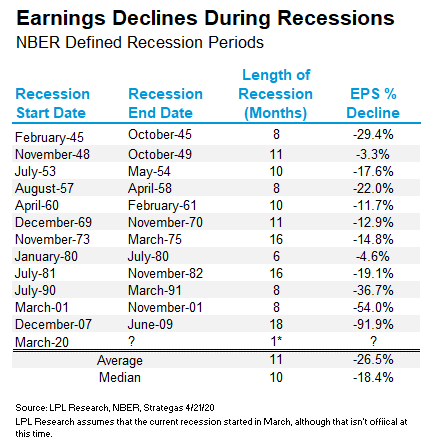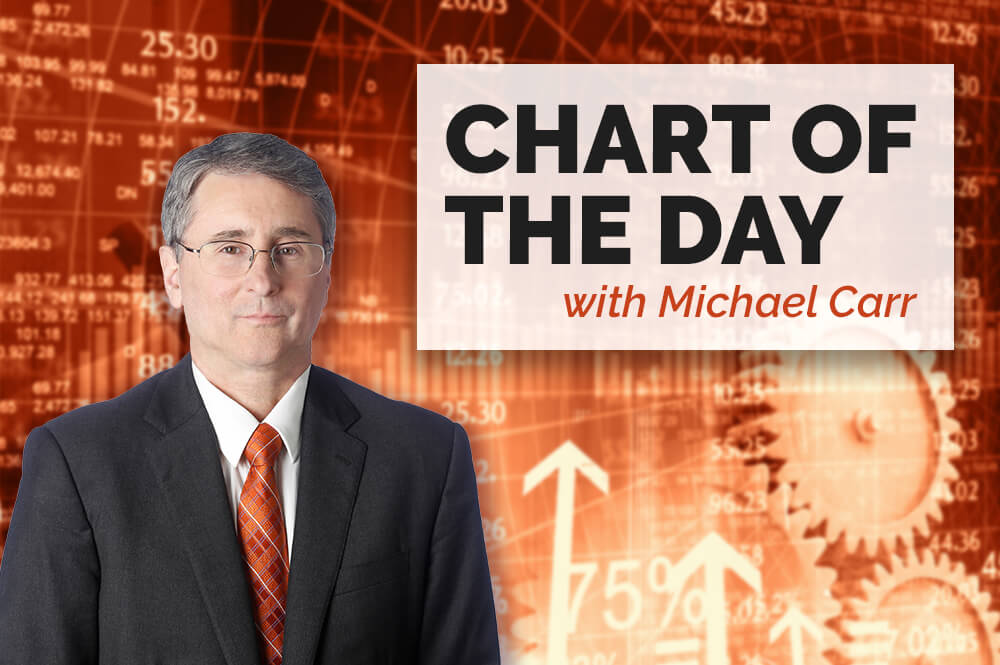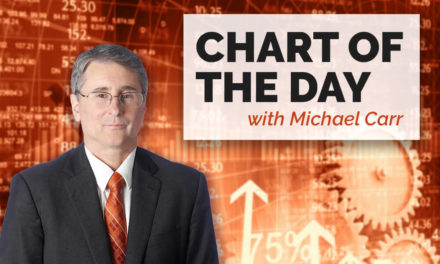Now is a good time for investors to be scared — one reason is that there’s general agreement we’re in a recession. Economists rarely agree on anything.
The S&P 500 is currently trading at about 2,800. If earnings fall by an average amount, the Index could drop another 22%.
There are always two sides to everything in economics.
That led to Harry Truman’s famous plea for straight talk: “Give me a one-handed economist. All my economists say ‘on one hand …’, then ‘but on the other hand … .”
Right now, all seem to agree that a recession is underway. Uniform opinion must mean the recession is obvious and deep. That’s scary news for the economy.
S&P 500 Earnings Fall 26.5% on Average In a Recession
Another reason for investors to be scared is the impact recessions have on earnings. In the past, earnings for companies in the S&P 500 fell an average of 26.5% in a recession since 1945.

Source: LPL Research
According to Standard & Poor’s, earnings per share (EPS) were $157.12 in 2019, the four quarters before the recession began in March. Earnings are weighted for this measure with each company’s EPS having the same weight as the company’s stock holds in the S&P 500.
As an example, Microsoft is about 5.6% of the Index. Last year, the company reported EPS of $5.74. For the Index, Microsoft contributed about $0.32 to EPS. Apple accounts for 4.9% of the Index and contributed $0.62 of earnings.
For now, analysts expect an 11.8% decline in 2020 with EPS falling to $138.65. History says that’s optimistic when in a recession.
An average decline in earnings puts EPS at $115.48. The average price-to-earnings (P/E) ratio since 1988 is 18.9. With that ratio, the index would trade at about 2,178.
The S&P 500 is currently trading at about 2,800. If earnings fall by an average amount, the index could drop another 22%.
The final reason for investors to be scared is that this isn’t an average recession. We should expect a higher than average number of small businesses to fail. We should expect a slower than average recovery.
Based on an average recession, the best case for investors is a 22% decline in the S&P 500.
With that information, long-term investors should consider building cash to buy later.
• Michael Carr is a Chartered Market Technician for Banyan Hill Publishing and the editor of Peak Velocity Trader and Precision Profits. He teaches technical analysis and quantitative technical analysis at New York Institute of Finance. Michael also is the former editor of the CMT Association newsletter Technically Speaking.




